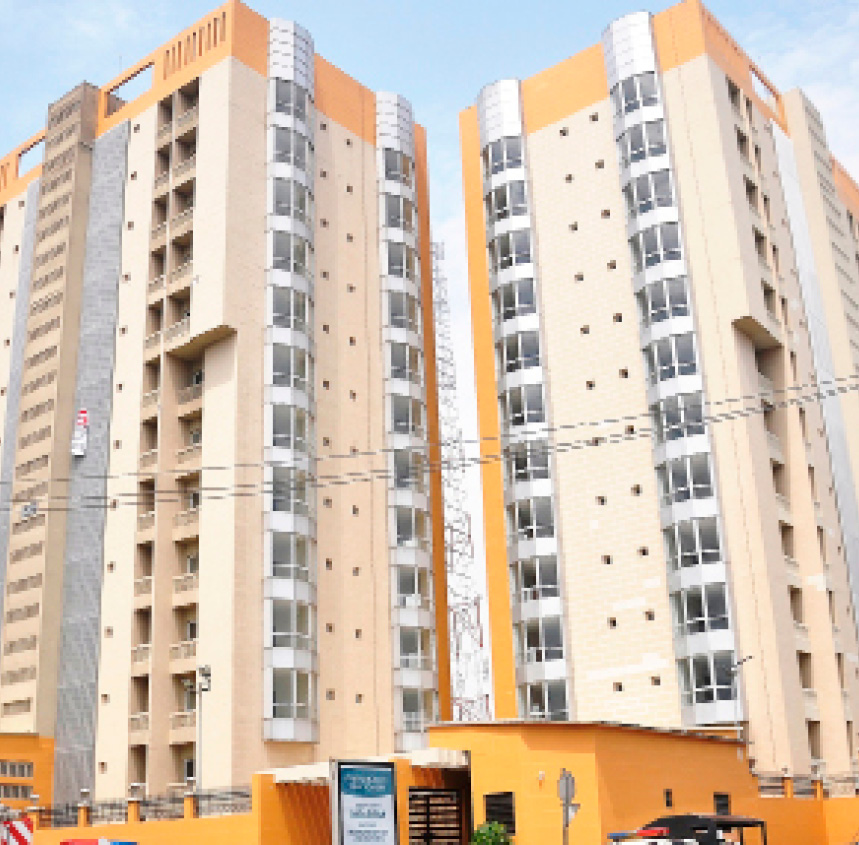Why real estate is a reliable means of storing wealth — Experts
The wealthy—business moguls and politicians alike—have found real estate an attractive venture where they store their wealth, mostly because of its reliability and security. According to McKinsey and Company, a New York-based consulting firm’s November 15, 2021 report entitled ‘The rise and rise of the global balance sheet: How productively are we using our wealth?’, […]

Twin towers on Gerrald Road, Ikoyi in Lagos
The wealthy—business moguls and politicians alike—have found real estate an attractive venture where they store their wealth, mostly because of its reliability and security.
According to McKinsey and Company, a New York-based consulting firm’s November 15, 2021 report entitled ‘The rise and rise of the global balance sheet: How productively are we using our wealth?’, over 60 per cent of countries’ wealth is stored in real estate despite overwhelming investment in software economy across the globe.
The report stated that real estate accounts for two-thirds of real assets globally.
Reacting to the report, Mr. Emmanuel Agbangba, a managing partner of Middle East Harvesters (MEH), a Dubai-based investment company, said the report was accurate in its assertion.
He said ownership of property, both land and built structures, has become a determining factor in wealth measurement and even political control.
“This is correct. Over the years, land and property ownership has been the deciding factor when it comes to wealth and also control of political power. And because land appreciates in value as the years go by, it is seen as a reliable means to store wealth,” he explained.
The McKinsey report affirmed that the value of residential real estate, including land, amounted to 46 per cent of global net worth in 2020, with corporate and government buildings and the land associated with them accounting for an additional 23 per cent.
“Other fixed assets like infrastructure, industrial structures, machinery and equipment, intangibles and mineral reserves-the types of assets that typically drive economic growth-made up only one-fifth of real assets or net worth, ranging from 15 per cent in the United Kingdom and France to 39 per cent in Japan.
“Intangible assets refer to intellectual property like R&D and software and play an increasingly important role in today’s economy.”
The New York firm further explained that real assets are critical to the global economy and returns on real estate account for about one-quarter of GDP directly. While growth in real estate also complements labour in driving productivity, which in turn drives economic growth.
The report’s analysis was based on 10 countries of the world – Australia, Canada, China, France, Germany, Japan, Mexico, Sweden, the United Kingdom, and the United States.
Also a real estate developer, Arc. Nasiru Ibrahim, said owning a property is a statement of wealth.
Ibrahim who is a managing partner of Black Orchard Property Development Limited in Abuja, said, “While it is difficult to have verified data regarding this (McKinsey report), it can be visible to note that the first major investment a Nigerian does is to build a house.
“It is popular culture like Burna Boy said ‘I want build house’ as a statement of wealth. It can be said to be true that significant wealth is stored in real estate in Nigeria,” he said.
